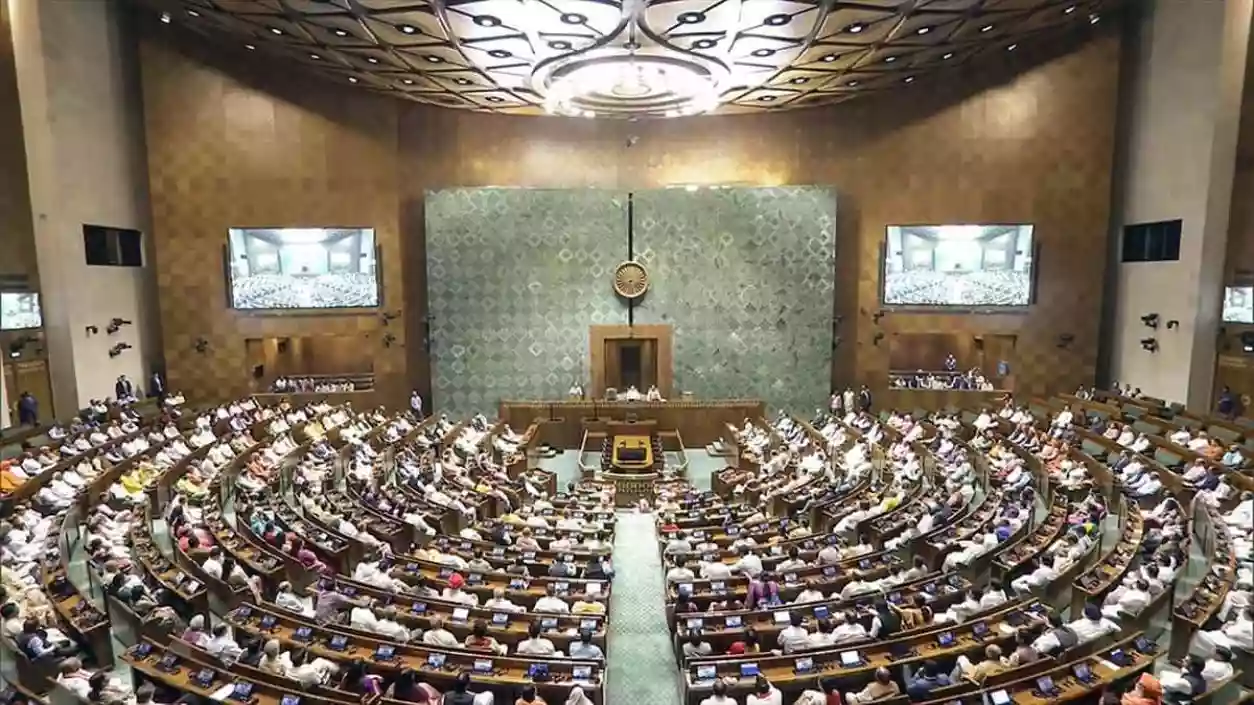.gif)
.gif)

On December 20, the Lok Sabha Speaker Om Birla referred two important bills—the Constitution (129th Amendment) Bill and the Union Territories Amendment Bill—to a 39-member joint parliamentary committee for further scrutiny. The bills aim to amend the Constitution to enable the synchronization of Lok Sabha and state assembly elections by 2034. This move has sparked significant debate, as the proposed changes require amendments to several provisions of the Constitution, which govern the terms and dissolution of legislatures at both the national and state levels.
The joint parliamentary committee, now expanded to 39 members from the original 31, will include 27 MPs from the Lok Sabha and 12 from the Rajya Sabha. The committee comprises members from various political parties, including the Bharatiya Janata Party (BJP), Congress, Samajwadi Party (SP), Shiv Sena (UBT), Communist Party of India (Marxist) [CPI(M)], and several regional parties. The committee will review the bills and submit its recommendations to the Speaker. The first motion to refer the bills to the committee was moved by Law Minister Arjun Ram Meghwal in the Lok Sabha on December 20.
The proposed amendments in the bills focus on allowing simultaneous elections for the Lok Sabha and state assemblies. This would necessitate changes to Articles 83 (term of Parliament), 85 (dissolution of Lok Sabha), 172 (duration of state legislatures), and 174 (dissolution of state legislatures), among others. These amendments are designed to synchronize the election schedules of the Lok Sabha and state assemblies, thereby adjusting the terms of state assemblies to the Lok Sabha cycle. Additionally, the bills propose to amend the process by which both the Lok Sabha and state legislatures are dissolved, potentially allowing for a unified electoral calendar.
The bills also seek to address the impact of such synchronized elections on state elections, with the aim of reducing the frequency of elections in India, which can sometimes overlap and create administrative burdens. The Election Commission will play a key role in facilitating the implementation of these changes, as it would need to manage the logistics of conducting simultaneous elections across multiple levels of government. The committee will consult with the Election Commission to assess the feasibility of these changes, along with other stakeholders, including state governments, political parties, and legal experts.
The proposed changes have been met with strong opposition from several parties, including Congress, the Samajwadi Party, and regional parties. Congress MP Manish Tewari opposed the bills, claiming that they would violate the “basic structure” of the Constitution, particularly with respect to the federal system that governs the relationship between the central and state governments. Tewari argued that the amendments would disrupt the balance of power, centralizing control and diminishing the role of state legislatures. Other opposition leaders, such as Dharmendra Yadav of the Samajwadi Party and Asaduddin Owaisi of the All India Majlis-e-Ittehadul Muslimeen (AIMIM), expressed concerns that the proposals would disadvantage regional parties by consolidating power at the national level.
In response, proponents of the bills, particularly from the ruling BJP, argue that synchronized elections will help streamline the electoral process, reduce the frequency of elections, lower the associated costs, and minimize governance disruptions. They claim that the benefits of having a unified electoral calendar include preventing “policy paralysis” that often arises from frequent election cycles and reducing the economic burden on the government and taxpayers. The committee will have 90 days to review the bills and consult with relevant parties before making recommendations, with the possibility of extending this term if necessary.
The proposed changes could have a profound impact on India's political landscape. If the bills are approved by Parliament and subsequently ratified by the states, they would mark a significant shift in the country's electoral system. However, given the strong opposition, the future of the amendments remains uncertain. The bills will likely require extensive consultations and negotiations to address the concerns raised by critics, particularly with respect to federalism and the autonomy of state governments.
The final recommendations from the joint parliamentary committee will play a crucial role in determining whether the proposed amendments can proceed through Parliament. The government aims to implement these changes by 2034, contingent upon the successful passage of the bills and the ratification process at the state level.